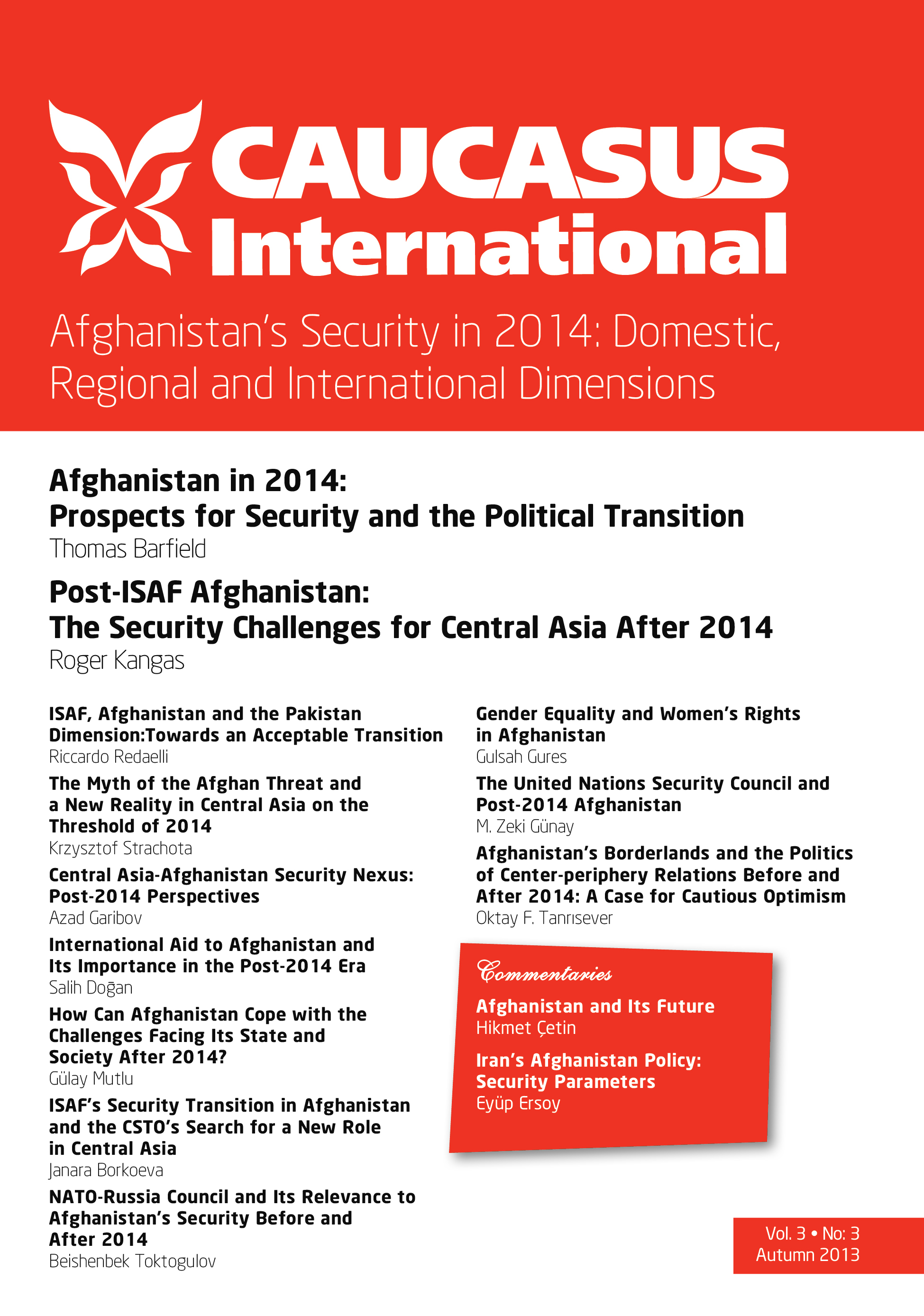ISAF, Afghanistan and the Pakistan Dimension: Towards an Acceptable Transition
The article explores the domestic and regional implications of the NATO withdrawal from Afghanistan after 2014. In domestic politics, the withdrawal will intersect with political transition: the presidential elections. According to the author, the results of the elections will represent either the failure or success of the ambitious program of assistance and stabilization launched by the international community twelve years ago. It also represents the need to avoid the disastrous results of the 2009 presidential elections, marked by massive fraud and manipulation. However, as the paper suggests, the current political scenario in Kabul is not very promising: personal rivalries, tribal feuds, ethno-tribal sectarianism, disinclining mode vis-à-vis international requests of transparency and clear voting mechanisms. In this sense, the future of Afghanistan as a united and stable country seems to be the less important goal for the Afghan political elites. In such a fragile situation, the regional dimension of the conflict acquires even greater importance. This is because if Pakistan does not effectively deal with Taliban in both political and militaristic terms, if Iran continues to act as a “lone wolf” in the post-ISAF scenario regarding the civil war in Afghanistan, and if the Arab oil monarchies maintain their polarizing support to religious dogmatism in the area, Afghanistan will not be able to achieve sustainable and credible stability. Nonetheless, the paper concludes that in post-ISAF Afghanistan, stability will depend more on the shifts within the political scenario than the security one, in the sense that without a credible political transition, and without a non-contested electoral process in 2014, all the previous costly and bloody efforts will have been in vain. In order to secure a successful political transition, two factors will be decisive: i) a strong focus on traditional domestic patterns of policy, rather than formal democracy procedures, ii) the involvement of regional actors, especially Pakistan, in order to reach a suitable, long-term political compromise with the insurgents.
Latest news
- 03/17/2020 Call for Submission: “Non-Alignment Movement and Its Perspective in International Affairs”. Deadline: 1 July 2020 2574 views
Popular articles
- 02/24/2020 The Role of Irredentism in Russia’s Foreign Policy 2491 views
- 02/24/2020 Construction of sub-national identity vis-à-vis parent state: Gagauz case in Moldova 2174 views
- 02/24/2020 The Conflict in Ukraine - The Geopolitics of Separatism and Divergent Identities (Commentary) 2030 views
- 02/24/2020 The Role of the Soviet Past in Contemporary Georgia 2004 views





